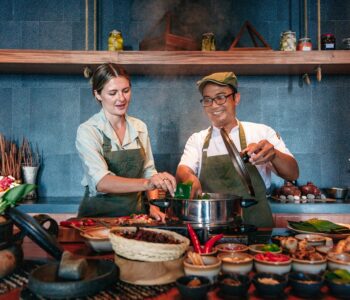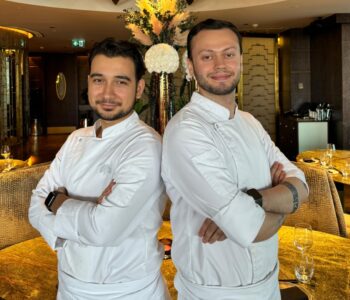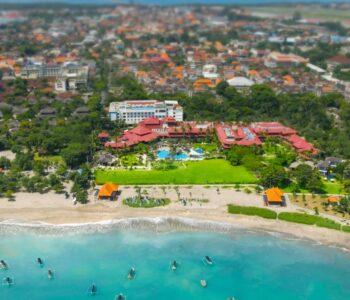When the pandemic brought Bali’s tourism industry to a standstill, Mika, 29, left his job in guest services at a resort and returned to his home village of Pajahan in the island’s central-west highlands. After 11 years of working in the tourism sector — which accounts for more than half of Bali’s economy — he had no choice but to return to his family’s small coffee plantation in the Tabanan Regency to try and make a living. The dramatic change was tough, but Mika soon realised that being a coffee farmer could be a viable — and even enjoyable — career.
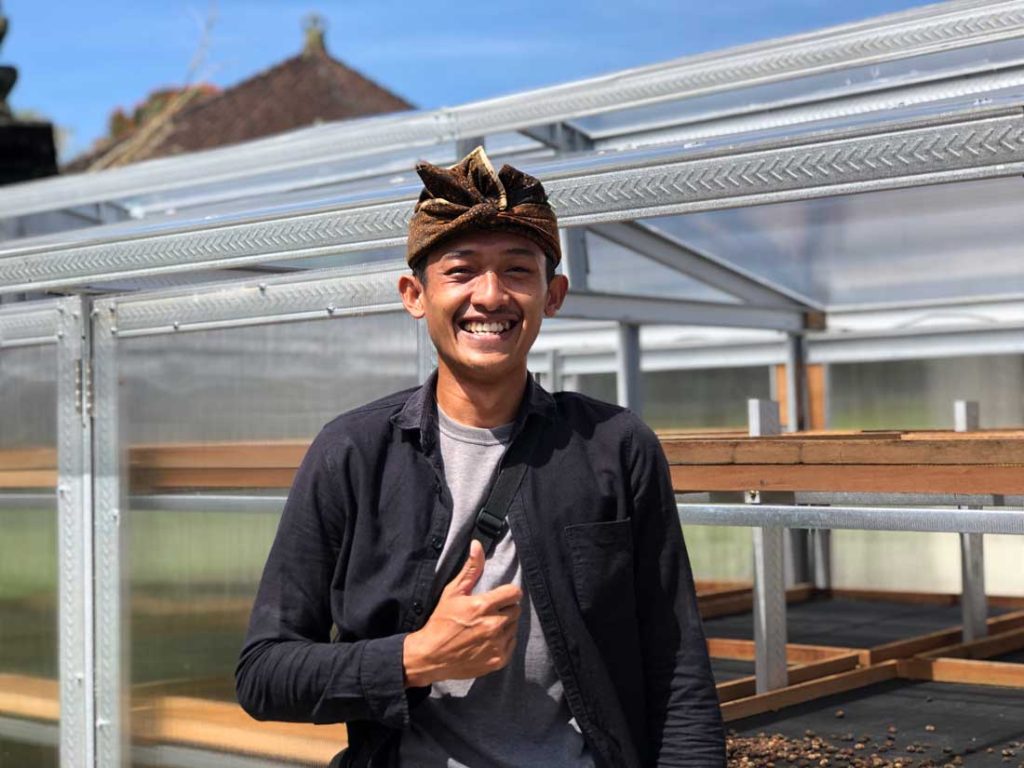
Prior to the pandemic, Bali’s younger generations did not see farming as an attractive prospect, due to the widely-held belief that it generates minimal income and holds limited opportunities. Historically, families in the island’s rural areas have encouraged their children to migrate to tourism centres to secure “better jobs”, earn a decent income, and build a more respectable social profile by working in the travel sector. Over the last two years, however, the impact of the COVID-19 pandemic has changed people’s social and economic dynamics, especially among those who — like Mika — lost their tourism jobs and returned to their hometowns.
Challenges of coffee farming in Bali
For Mika and his peers in Pajahan, coffee farming is not unfamiliar. Their parents are mostly smallholder farmers who grow and sell robusta coffee, one of the village’s primary commodities. With around 70,000 smallholder coffee farmers, Bali is the tenth-largest coffee-producing region in Indonesia, according to the nation’s central statistics agency. Tabanan produces most of the province’s coffee and is home to approximately 17,400 smallholder farmers. After Vietnam and Brazil, Indonesia is ranked third in global robusta coffee production, according to the US Department of Agriculture.
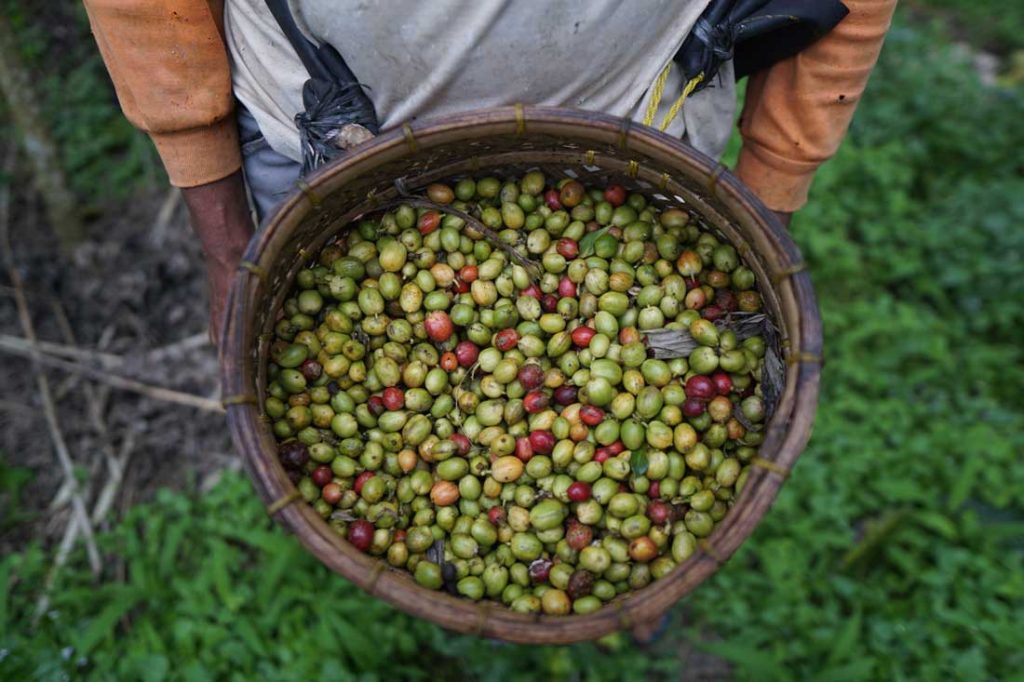
Pajahan village used to produce its robusta coffee products under the name of Kopi Tugu, but production and sales stopped due to management issues and the impacts of the COVID-19 pandemic. Today, almost all of the smallholder farmers in the village sell their harvest to big companies via multiple layers of middlemen, which often results in low selling prices for the farmers.
Coffee farmers in Pajahan face additional problems that are also experienced by other farmers in Indonesia’s agriculture sector. Firstly There is a decrease in the number of farmers in Indonesia, and the majority of farmers are people over the age of 40 years. Older people are gradually ageing out of farming, with much fewer younger farmers replacing them. Negative perceptions around farming and a lack of innovation in the sector are pushing the younger generation away from agriculture to find work elsewhere.
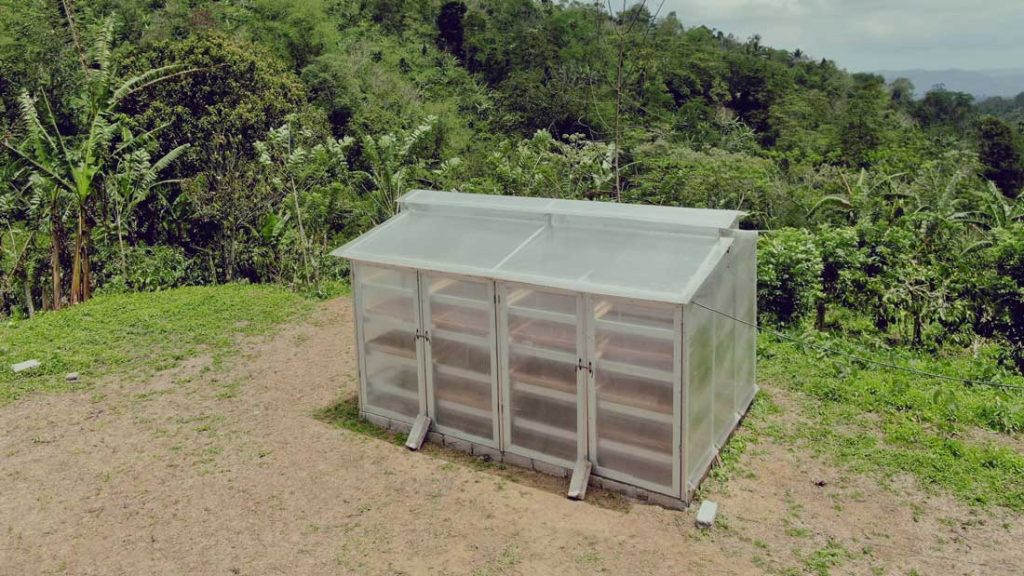
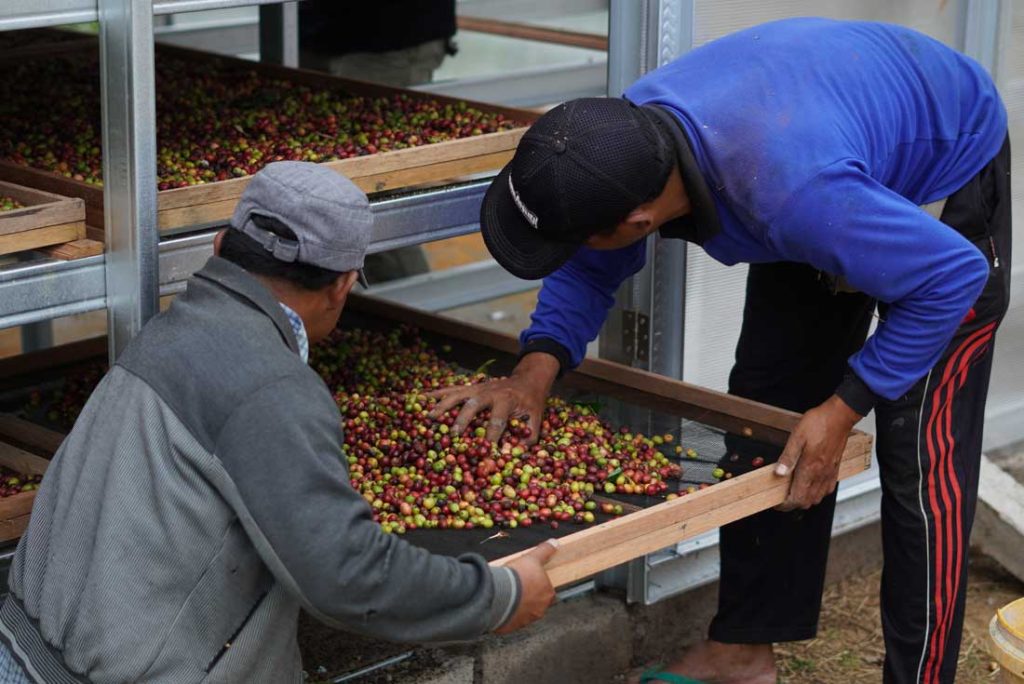
Secondly, smallholder farmers typically sell their produce to multiple layers of ‘middlemen’, all of whom work on small margins in Indonesia’s coffee industry, an IDH: Sustainable Trade Initiative study found. In the coffee supply chain, selling coffee to a ‘middleman’ is the only option for most farmers, but it comes with the risk of fluctuating prices. In a poor price season, a farmer might sell one kilogram of dried coffee beans for only IDR20,000 (around USD1.30) to a middleman, who would then sell to other middlemen or exporters at a higher price, with the farmers getting the worst deal along the value chain. Some coffee farmers also obtain loans from middlemen, and commit to paying their debts with coffee beans. For these reasons, accessing new buyers and selling coffee at fair prices — is not easy.
Thirdly, several studies from the Rainforest Alliance and the US Department of Agriculture have demonstrated that coffee farming practices using chemical fertilisers in Indonesia can harm soil health. This impacts the quality of current crops and future agricultural use of the land as well.
Nurturing the next generation
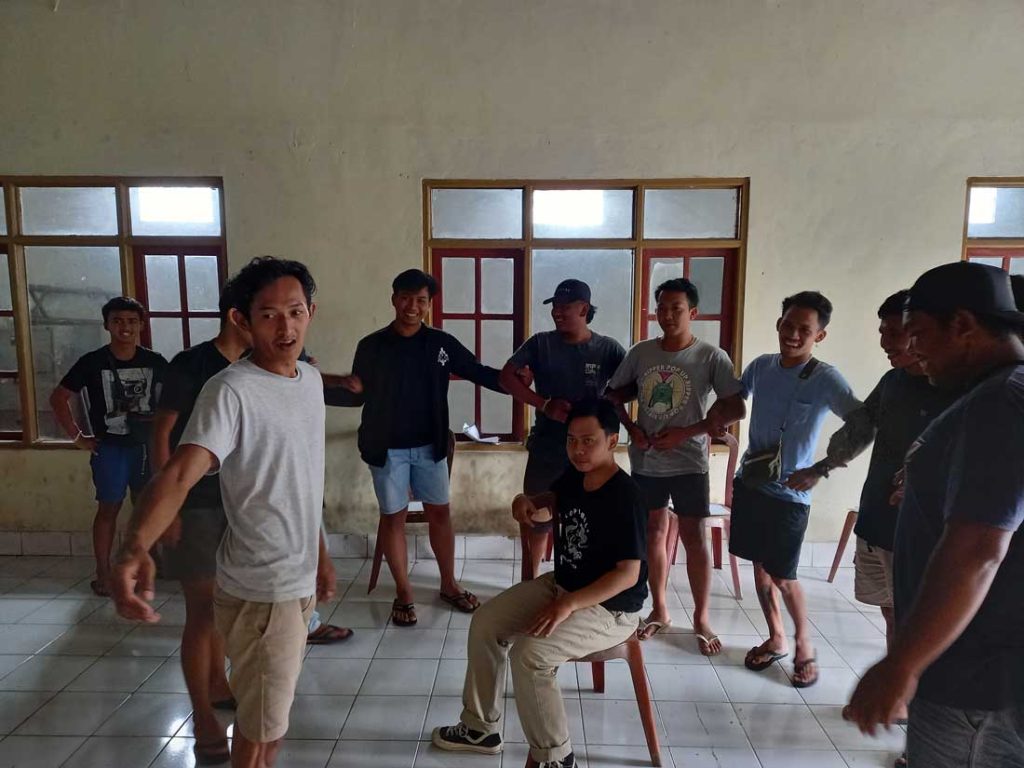
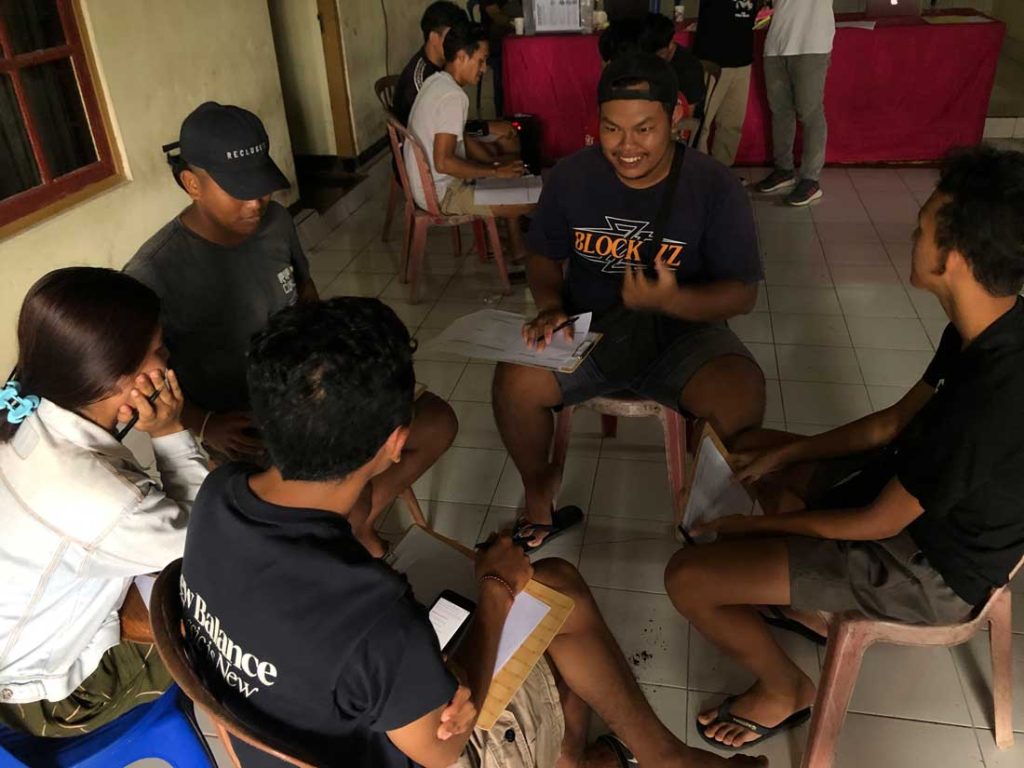
Like Mika, other young people in Pajahan village are adapting to their new identities as coffee farmers since the pandemic hit. To support them and other more established smallholder farmers, over the past year Kopernik has been holding workshops that focus on innovation and the sustainability of the coffee industry. The program includes introducing good agricultural practices, as well as improvements to post-harvest processing, packaging, marketing and connections to new buyers.
As a new coffee farmer, Mika has already sold small quantities of his organic coffee beans to buyers in Denpasar and Surabaya at a fair price. By producing higher-quality coffee beans through improved agricultural practices and post-harvest processing, he has even set up a distribution partnership with buyers in France. These achievements have motivated him to continue his journey as a coffee farmer and encourage sustainable coffee farming practices in his village.
A new dilemma
Now that Bali’s tourism industry is moving towards recovery, young people in Pajahan are facing a new dilemma: whether to keep working as coffee farmers in the village or return to work in the tourism sector. Of the 25 young farmers – like Mika – who took part in the innovation and sustainability workshops in Pajahan, more than half have already left the village for jobs back in the now recovering tourism industry. They still believe it will take a long time to earn a decent living from farming. The challenge of gaining – and maintaining – the interest of young people to work in the agricultural sector remains.
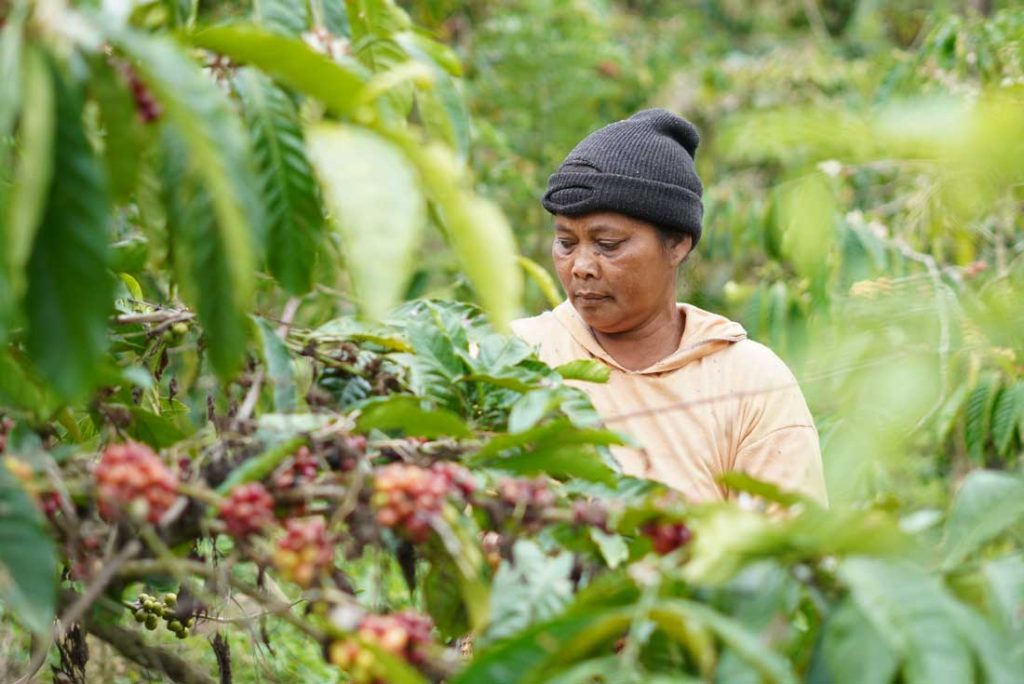
Unlike many of his peers, Mika is firm on his decision to continue on his coffee farming journey. He no longer wants to work in the tourism sector, he wants to be closer to his family, and to earn decent money and to own a house in his home village. With the uncertainty of a secure career in the tourism sector that Mika experienced during the pandemic, he believes that a career as a coffee farmer is the right, and smart choice for him.
Addressing the current challenges in the agricultural sector and improving the supply chain to achieve fair and sustainable coffee farming is crucial to making a career in agriculture an attractive option for young people. This is critical to mitigate the rapidly decreasing number of Indonesian farmers and to create meaningful employment and livelihood opportunities in rural areas.
Together with Mika and the next generation of coffee farmers in Bali, we are committed to continuing the mission of encouraging young people to become involved in coffee farming and the agricultural sector more broadly.
Randiano Tamelan is an Analyst at Kopernik, a research and development lab for social and environmental challenges in Indonesia. Find out more about the organisation at kopernik.info.


